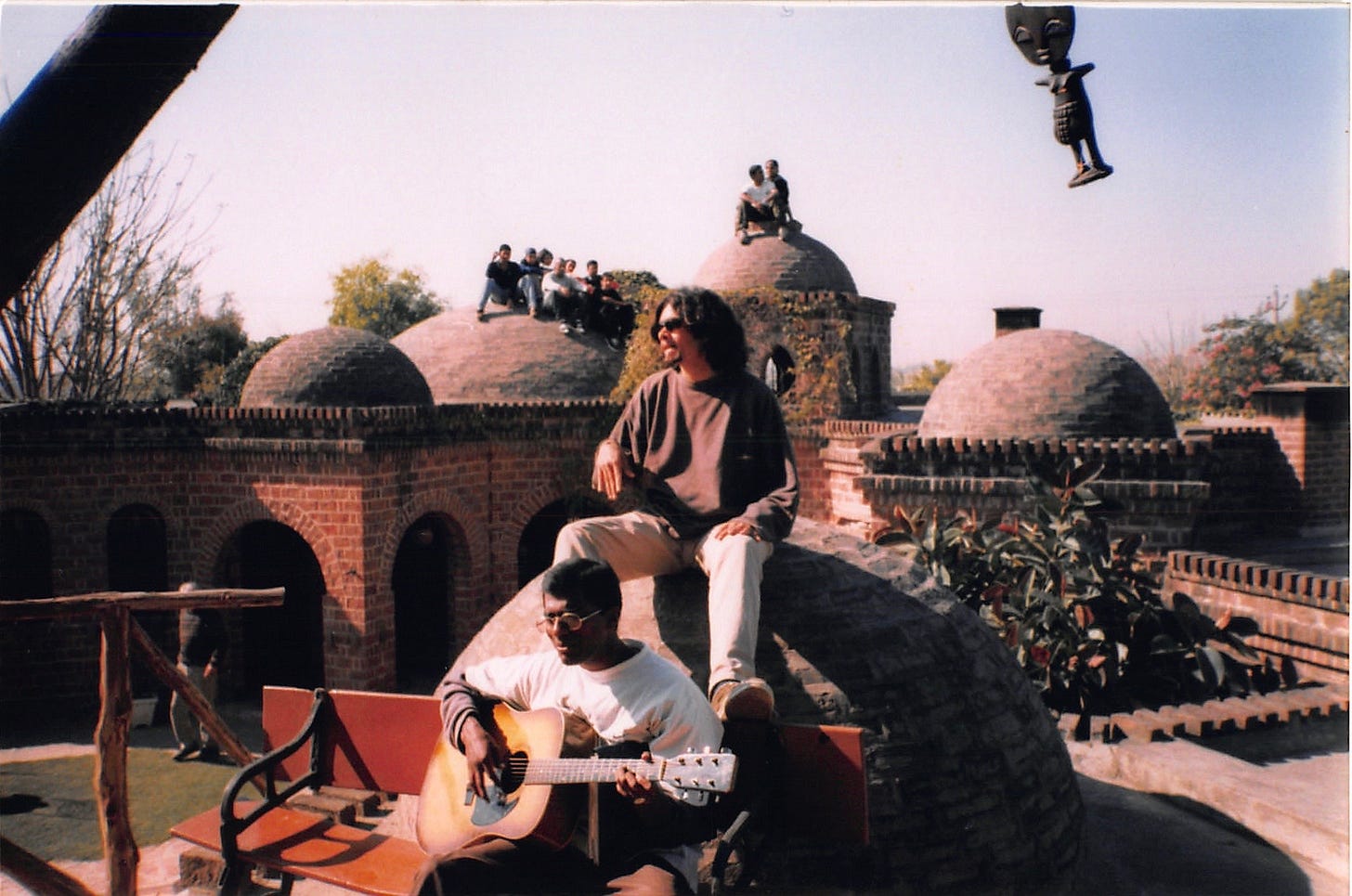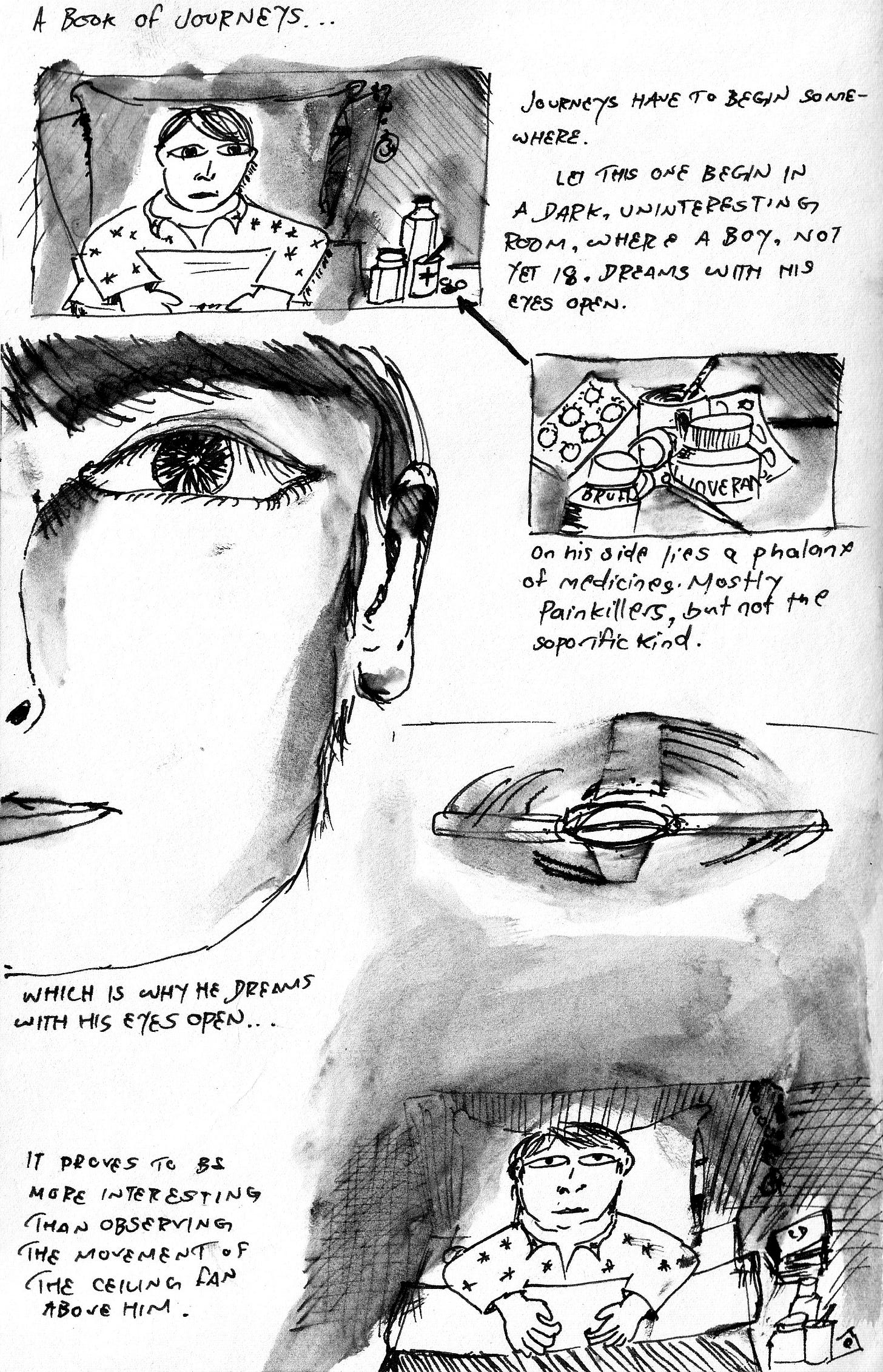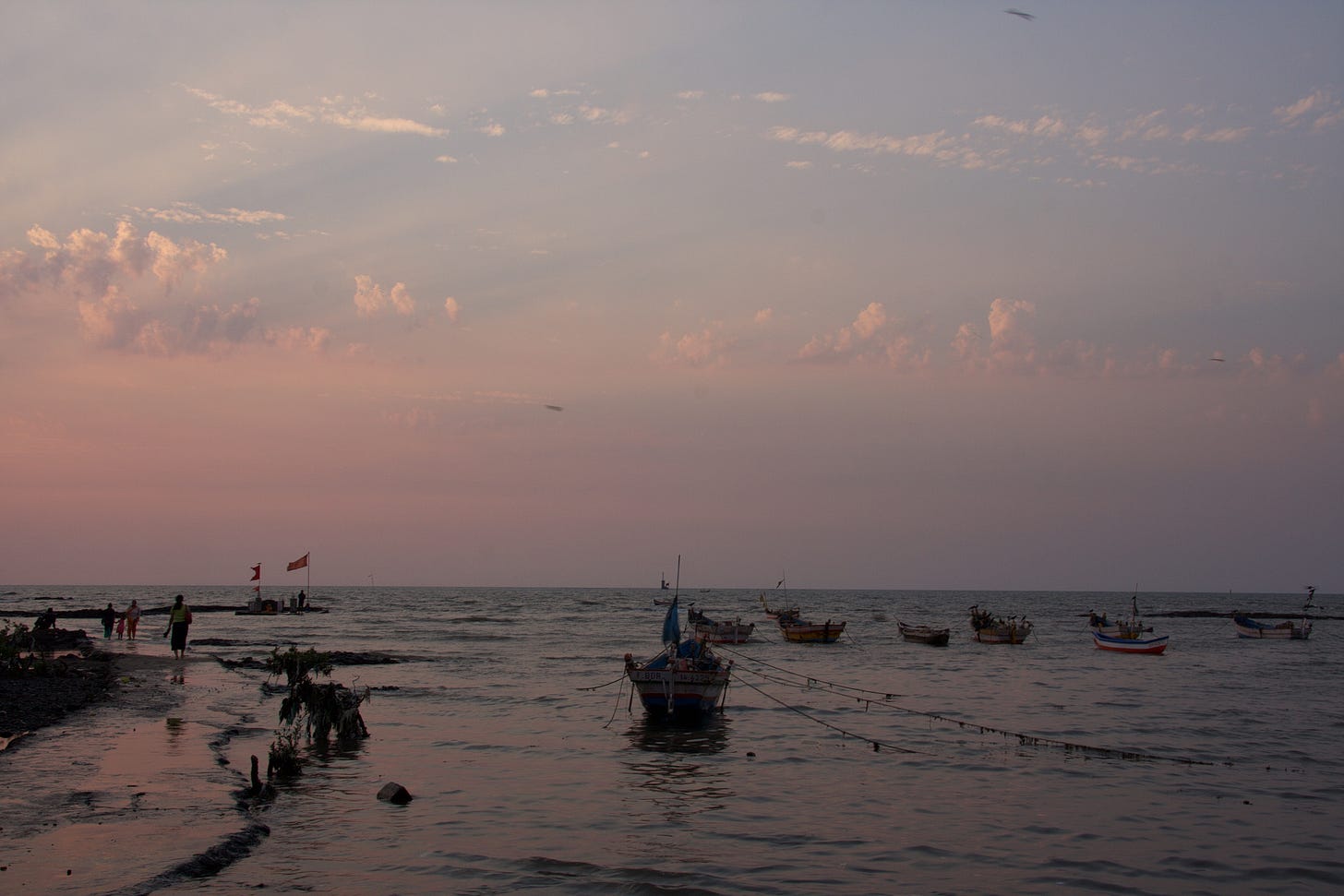Dearest Yet Untitler,
This week I was really inspired by Lynda Barry’s writing exercise called “If You Make a List Of All Dogs You Have Ever Known”. It’s towards the end of her book What It Is.
Briefly - Barry asks - if you were to make a list of all the dogs you have ever known, how many dogs would be on the list? According to Barry, you’ll be surprised. If you give yourself enough time for this exercise, you’ll likely find names of dogs on your list that did not present themselves so easily. Barry suggest using the exercise to reveal how our minds put certain things away in a not-so-easily-accessible compartment. She suggests various reasons why we do this - pain, for one. Our not being ready to deal with that memory prompts the mind to hide things away, leaving a gap.
The exercise got me thinking about gaps (and I’ll come back to what Barry was leading us to later).
My Dad-Shaped Gap
A good friend not seen for the better part of eight years met me for dinner and we caught up. In the course of our conversation I realised that this friend had not been totally missing from my life. In fact, he had called me two years ago in the aftermath of my father’s death.
I have absolutely no memory of this phone call.
When my father died, taking condolence phone calls was my only way of mourning. I took a lot of them - it gave me an opportunity to speak about him. When I’d remember my dad to others, I could emote, cry and feel some pain. Left to myself, I only knew his loss intellectually, without feeling.
I remember hearing in my teens - “the body does not remember pain”. I’m thinking now - neither does the mind. I can confirm this because the phenomenon repeats like clockwork in my life. Many times over the past two years I have heard someone say - “We spoke when your dad passed?” Each time, my response is the same - “Really? I don’t remember.”
This struck me as very odd, especially because I am always the one who remembers EVERYTHING. Ask my pal Angad C - I even remember his life for him up to a certain point. Come to think of it - I probably help him bridge his own set of gaps; and I know he has a few.
Is this what the best of our friends do for us? Help us see into those parts of ourselves we cannot? I’m suddenly thinking of this song my kids loved when they were toddlers. It’s trippy and it’s topical. Perhaps even tropical.
Let’s talk more about GAPS
Here are some times when my memory lapsed - in ways I cannot forget!
A. I fainted on a train once, in Amsterdam. I had consumed a certain type of cookie. An airiness had crept up my body to the back of my eyes and the next thing I knew, I was looking up from the train floor with all the passengers looking at me, including my wife who was screaming at my face and I couldn’t hear her. I also did not remember falling.
B. About 20 years before the above regrettable incident, I fainted in the queue for a US visa. We had been made to wait in the hot Delhi summer sun to get inside. I had been there since 4am, since only a certain number of visas were given each day. I had fainted with all my documents and a wad of cash in my hand. I had no memory of the those few moments I was out. Just after, someone made me sip Rasna, packed me off in a taxi and sent me home. No one stole the cash. Apparently, my papers had been submitted and the receipt handed over to me.
C. The pandemic itself is another instance of when the experience of time and memory feels weird. Lockdown for me was about a year long, but in my memory, it feels like one big chunk of time - an amalgamation of making pizza, working from home (one never-ending zoom call), watching Studio Ghibli films with the kids, accepting packages from Amazon. Everything that falls in between…isn’t remembered. Did it happen? Did it not? Perhaps it did, but on which day? So many gaps!
The Gap of Sleep and Dreams
There are those mornings when contact with my bed sheet acts as a anaesthesia and the next registered moment is waking up and gazing at the ceiling fan or the wall to my side. On other nights there are dreams.
I suspect that dreamless nights are the ones where dreams aren’t remembered. I suspect that the gaps in question are gaps in memory. Just a stoppage in recording, not a hiatus in being.
The Gap of Lost Photos
Once, I shot an entire roll worth of photographs on my Pentax, only to realize that the spool hadn’t caught. It was September in Mumbai - when the post monsoon clouds became very dramatic and the subject was Carter Road with its promenade and its boats.
I will never see those photographs, but neither will I forget having taken them. The disappointment of losing them - the gap itself - became the thing not forgotten.
The Dad-Shaped, Farm-Shaped Gap - Part 2
The Farm.
Every brick seems imprinted with the memory of my dad. I have so many happy memories of this place - from running to the train tracks unaccompanied to flatten coins, to sitting by the fireplace burning photos of celebrities to entertain myself on tv-less, internet-less nights. A potato wrapped in tin-foil roasted in the embers beside a burning center-spread of Mandira Bedi.

Going there after dad died, all I see is his absence. I cannot go there anymore without feeling the kick of pain to my gut.
Bruce Springsteen captured this sentiment - the experience of absence - in this favourite song of mine from his album, The Rising (2002), which was his response to the tragedy of 9/11. Here’s “You’re Missing”:
The Opening of a Gap-Shaped Gate
Here is Lynda Barry’s full text. Do read to the end:
“If you made a list of all the dogs you have ever known, how many dogs would be on your list?
If you look at your list you may find dogs not forgotten, but not remembered either -until you called them with your pen. Where were they waiting? Why have they stayed, willing to be unthought - unpictured, till now?
Some of them have been gone a very long time. Some of them we have made our selves forget to recall because losing them had been unbearable - and being without them, worse.
And so they seem gone from our thoughts as a favour to us. A kind of mercy. They do not cross our minds until we can stand it again. But they are there inside of us in that image-place. They happened to us and we happened to them. This cannot be undone by forgetting--or re-made by remembering. We cannot bring them back and cannot lose them - we know this because we have tried. During the unbearable time and the empty time which followed. And the unremembered time that is not forgetting, but the kind of fencing-off, and image space; active, though unthought - in the way dreams are unthought…are something other than thought.
If you made a list of all the dogs you have ever known…alive or dead… yours or someone else’s… you will be making a gate for a fence you may not know about.
Will you open it?”
I know now why I’ve spent the week looking at gaps.
A few mornings ago, I thought I smelled the tobacco my dad used to smoke in his pipe. His pipe - one day he just went ahead and accessorised. Years later, he'd do the same when he started vaping like a Zoomer. But it’s the pipe I remember distinctly.
A few mornings ago, I thought I saw dad as if in a badly framed photograph, head cropped off but smoking, speaking indistinctly. Despite its incompleteness, it made me smile.
In looking at these gaps, I have made a gate for a fence I perhaps had not know.
In writing about them, perhaps I have opened it, even just a bit.
Before you go…
Did this post trigger your thoughts about your memory and the gaps therein? What do you do when you come across a gap? Have you ever derived a special meaning from it?
Please tell me. I want to know!













Gaps are what makes memory so much more valuable for it is in loss that we realise the real beauty of what was once held - a memory. Reminds me of one of my favourite writer Milan Kundera's trilogy - Slowness, Identity & Ignorance. "There is a secret bond between slowness and memory, between speed and forgetting" : )
Thanks for a sharing Tejas. Will visit the trilogy !